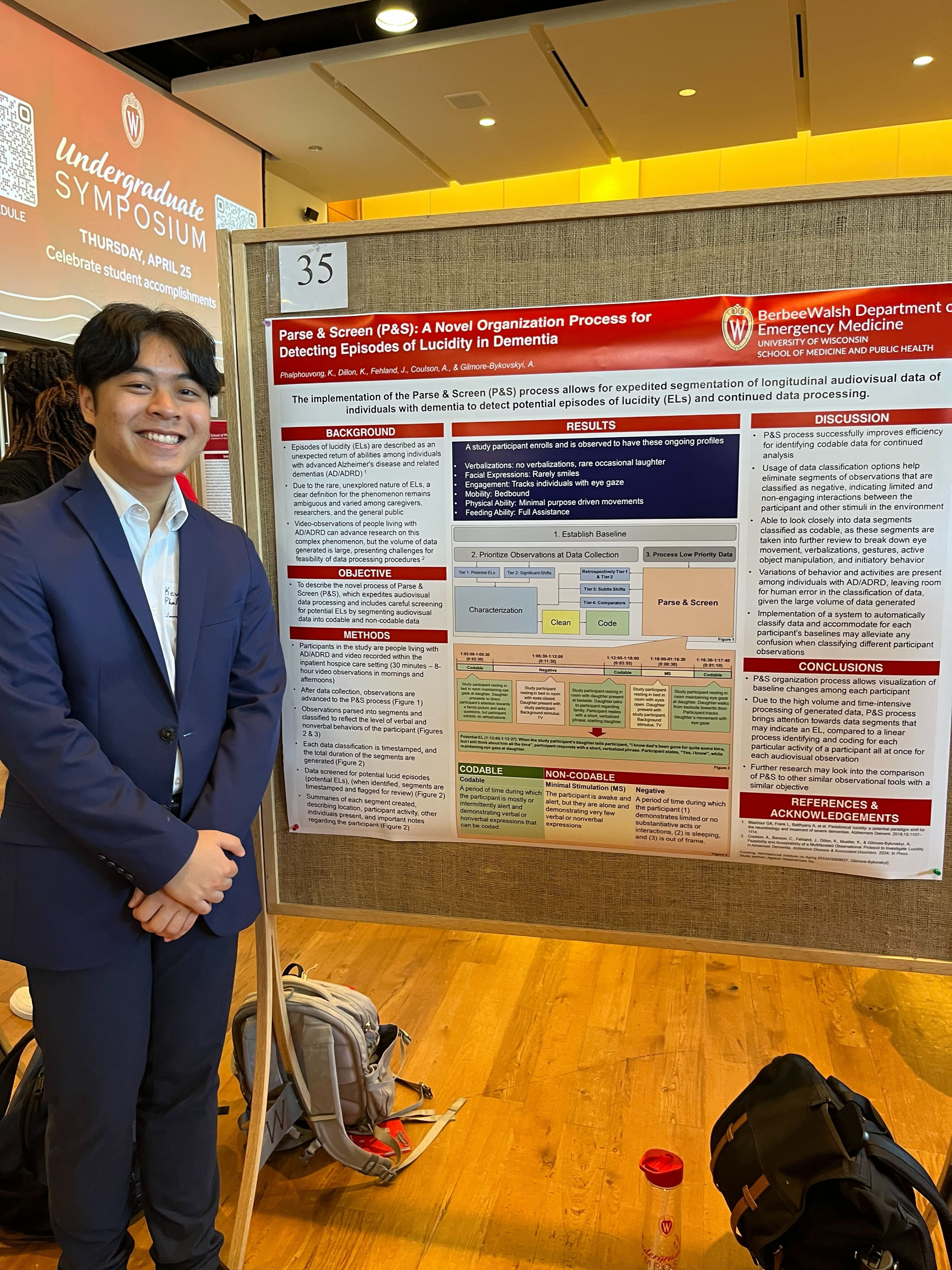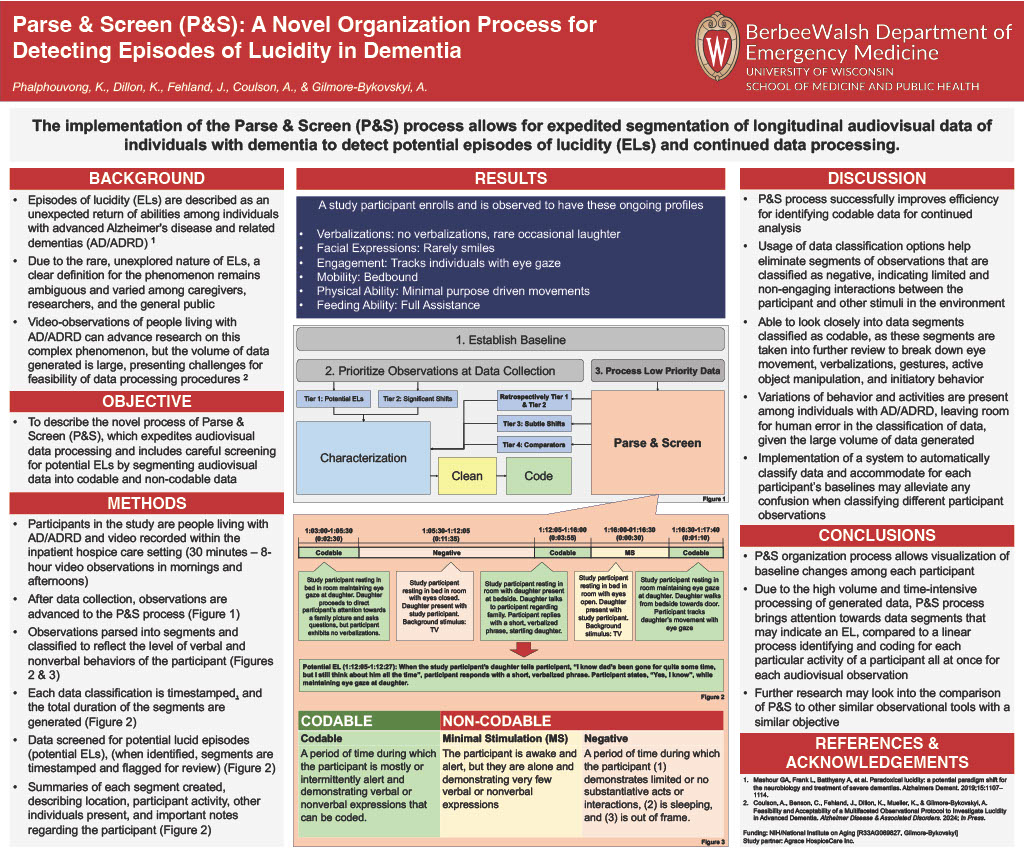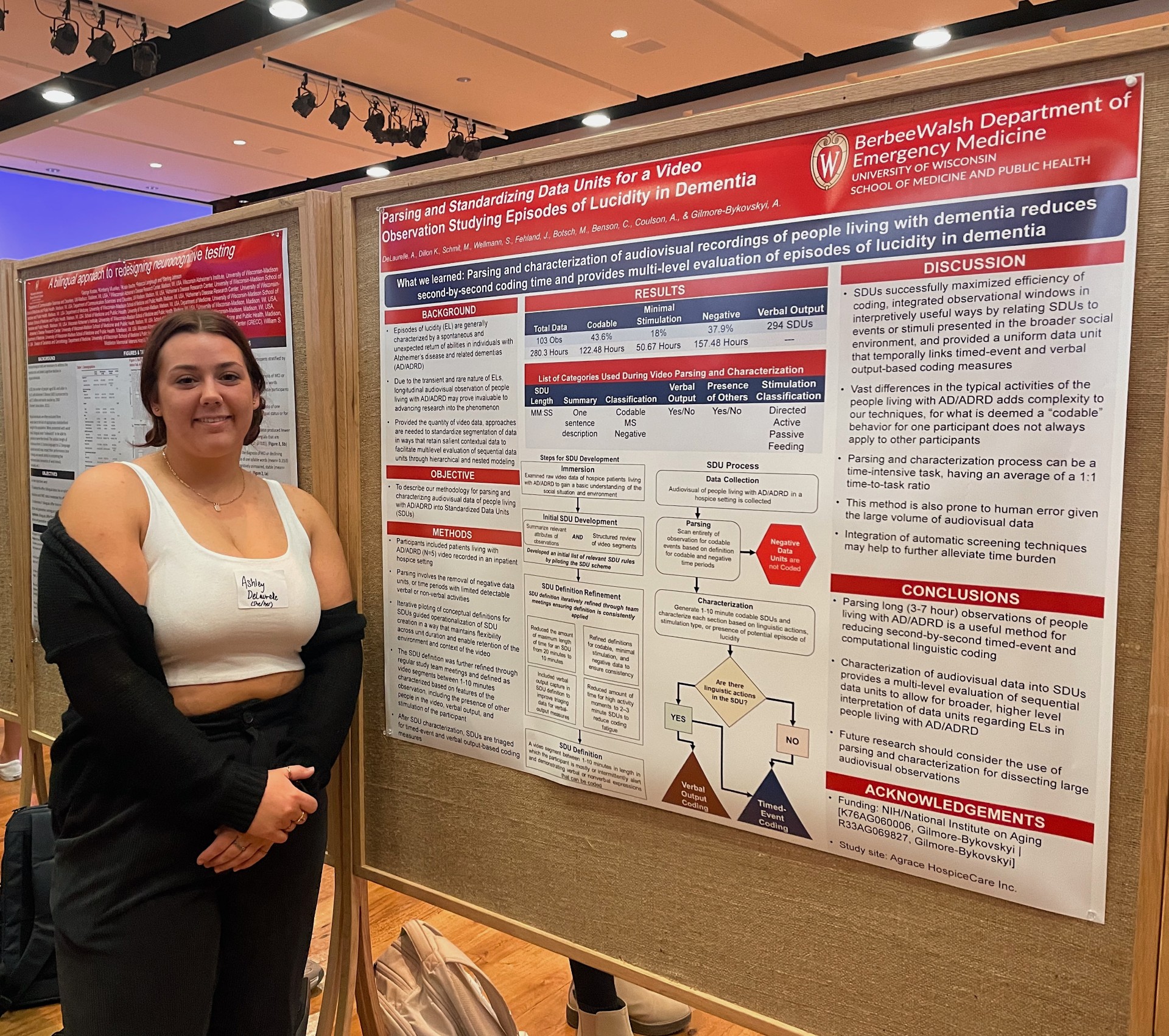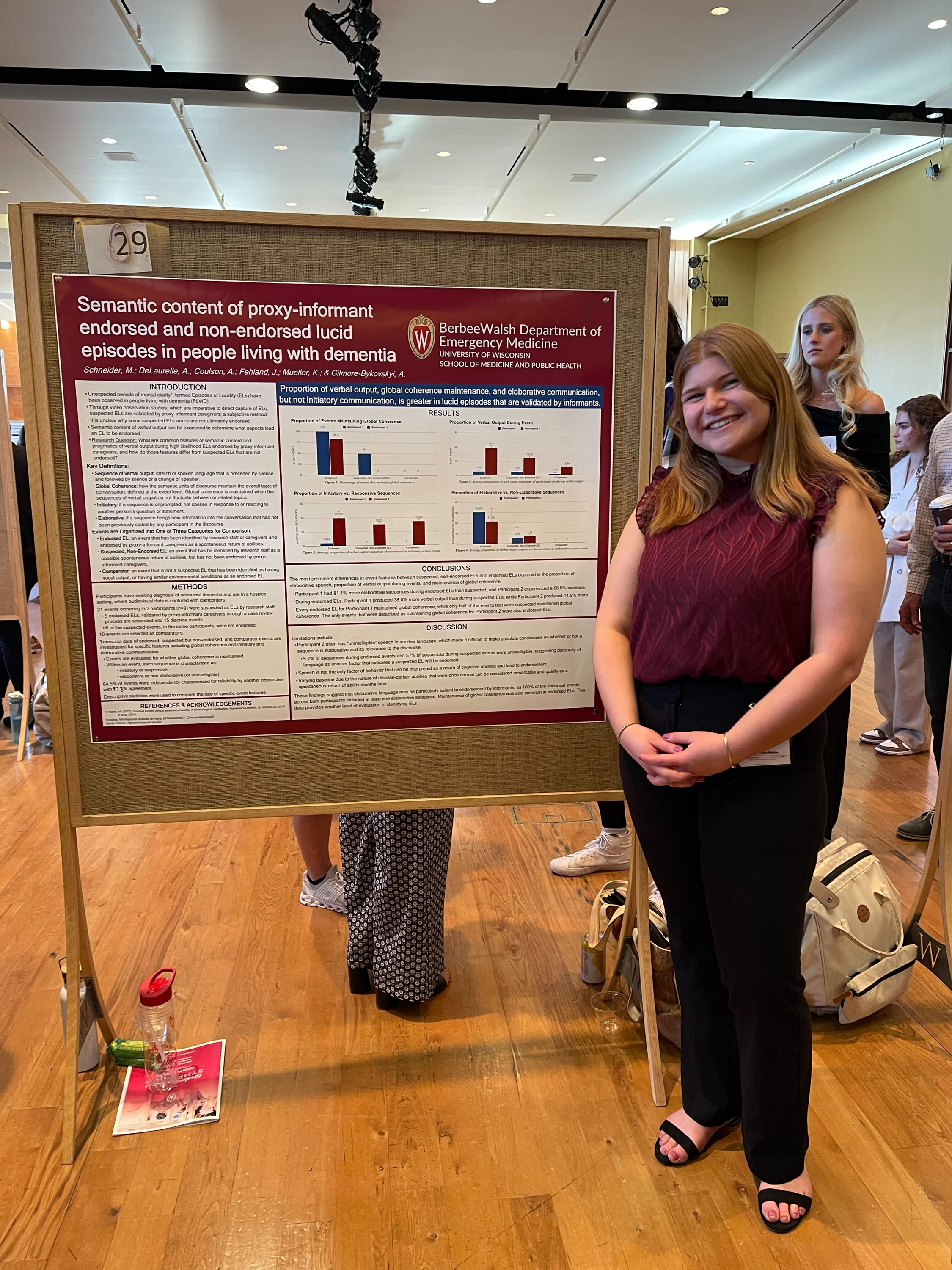Lucidity in Dementia Project
We are thrilled to lead one of the first large-scale studies to investigate lucid episodes that occur among people living with dementia in advanced disease stages.
What is lucidity, and why is it important?
Alzheimer’s disease and other types of dementia cause progressive, irreversible losses in one’s memory and thinking abilities. There is currently no available cure or treatment for dementia. However, lucid episodes, described as periods of a return of abilities, awareness, or memory, have been reported by family and care providers, commonly near end of life. Understanding these episodes could help inform new approaches to care and strengthen the connections people with dementia have with others.
Our lab is one of 5 teams across the US funded by the National Institute on Aging to research lucidity in dementia. We interviewed caregivers and clinicians of people living with dementia to better understand their experiences with lucid episodes, as well as their recommendations for studying these moments. The majority of those interviewed could readily recall an event they perceived as lucid, and their interpretation of these events varied. A journal article outlining some of the major findings of these interviews can be found here.
Based on the input collected from our interviews, we are currently conducting audiovisual observation at Agrace Hospice to capture changes in communication abilities in people living with dementia that can help us detect episodes of lucidity. We hope to eventually enroll 40 participants in this study, and 30 family members to help guide and offer input on our research approach.
Who is eligible for participation?
- People living with advanced stages of dementia and receiving care at Agrace Hospice.
What does participation involve?
- If you are the legally authorized representative for a person living with dementia at Agrace Hospice, we will ask for you to provide informed consent on their behalf to participate in audiovisual observations.
- Observations are conducted using unobtrusive approaches and a flexible schedule so as to respect privacy and ongoing care needs.
Connect with us
- If you have any questions, or would like more information, please give us a call at (608) 445-5757, send us an email at lucidityresearch@medicine.wisc.edu, or fill out the contact form below and one of our team members will assist you.
Publications
- An observational study protocol to capture, validate and characterise lucid episodes in people living with advanced dementia receiving hospice care (2024)
- Feasibility and Acceptability of a Multifaceted Observational Protocol to Investigate Lucidity in Advanced Dementia (2024)
- Preliminary analysis of verbal and nonverbal indicators of episodes of lucidity in advanced AD/ADRD (2023)
- The Impact of Episodes of Lucidity on People Living With Dementia and Their Caregivers: A Case Report (2023)
- “It’s You”: Caregiver and Clinician Perspectives on Lucidity in People Living With Dementia (2022)
Recent Presentations:
1st slide: Kevin Phalphouvong (Undergraduate Reasearch Assistant)
2nd slide: Ashley DeLaurelle (Undergraduate Reasearch Assistant)
3rd slide: Maggie Schneider (Undergraduate Reasearch Assistant)
Gilmore-Bykovskyi Lab
Feedback, questions or accessibility issues: brainhealthteam@medicine.wisc.edu







